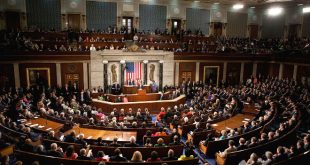A Wall Street Journal opinion piece by Sen. Mitt Romney regarding the demise of the No Labels political party initiative tells us as much about Romney, and why he failed to ever become a national leader, as it does about the failure of the No Labels effort.
No Labels defined its mission “to support centrism and bipartisanship.”
Romney defines this effort as seeking out the “sensible middle voices” in American politics.
My view is that No Labels failed because of its very incorrect assumption that what Americans seek is a so-called middle ground, or even that a middle ground exists, on issues that most trouble the nation today.
No Labels was wrong in its assessment of what the nation wants and needs, and Romney is wrong.
Former President Richard Nixon once observed that many make the mistake of thinking that conflict is the result of misunderstanding rather than difference of belief.
When America split and descended into civil war in the 1850s and 1860s, it was not because of the failure of sensible middle voices to emerge.
It was because there were many in the country who believed that slavery was not only OK but desirable. It was because some believed that Black Africans who were enslaved were not even human beings.
Where is the middle ground, the “sensible middle voices,” on slavery?
Slavery was not about misunderstanding or lack of communication. It was about conflict between very different sets of beliefs.
This is what is happening in our country today.
Over the years, the country has become increasingly polarized, with very different views about what is true and not true and even what the country is about.
In the most recent Gallup polling on patriotism, only 39% say they are “extremely proud” to be an American. Only 67% say that are “extremely/very proud” to be an American.
Twenty years ago, 90% said they were “extremely/very proud” to be an American.
On issues of great concern to and impact on the country, opinions are deeply divided.
Gallup reports that the divide between Republicans and Democrats on how much power the federal government should have has increased by 50 points over the last 20 years.
The divide between Republicans and Democrats on the nature and cause of global warming has increased by 33 points, on satisfaction with K-12 education has increased by 30 points, on whether abortion should be legal under any circumstances by 30 points, on the importance of foreign trade by 29 points, and about immigration by 29 points.
Where is the “sensible middle” on these issues? The answer is there is none.
The different points of view emerge from very different views of the world, very different views of what is or is not true.
The great struggle in our nation today is about whether the founders’ vision of a free nation under God, with limited power of the national government, will be restored and harnessed to today’s challenges. Or if we will continue in the direction of secular humanism, Godlessness and socialism.
Abraham Lincoln captured today’s reality, as neither No Labels nor Mitt Romney could do.
Lincoln said in 1858: “A house divided against itself cannot stand. I believe this government cannot endure, permanently half slave and half free. I do not expect the Union to be dissolved — I do not expect the house to fall — but I do expect it will cease to be divided. It will become all one thing, or all the other.
There is a reason why Donald Trump came out of nowhere in 2016 to win the presidency, running on the theme “Make America Great Again.”
The struggle today is between those who want to recapture our founding values and principles. And those who want to destroy them.
The House will not fall. We will become all one thing, or all the other.
Photo credit: thisisbossi (Creative Commons) – Some rights reserved
 Star Parker is the founder and president of the Center for Urban Renewal and Education. Contact her at www.urbancure.org.
Star Parker is the founder and president of the Center for Urban Renewal and Education. Contact her at www.urbancure.org.
 CURE News and Clergy Blog News and Commentary for Christians
CURE News and Clergy Blog News and Commentary for Christians




“Division” is good for a democratic-republic. It’s the only way one side will the other’s voice, and vice versa. “Middle ground” (where everyone gathers to a consensus) is probably not the best way forward.
Although I hope this does not happen, I’m not totally convinced the house will not fall.